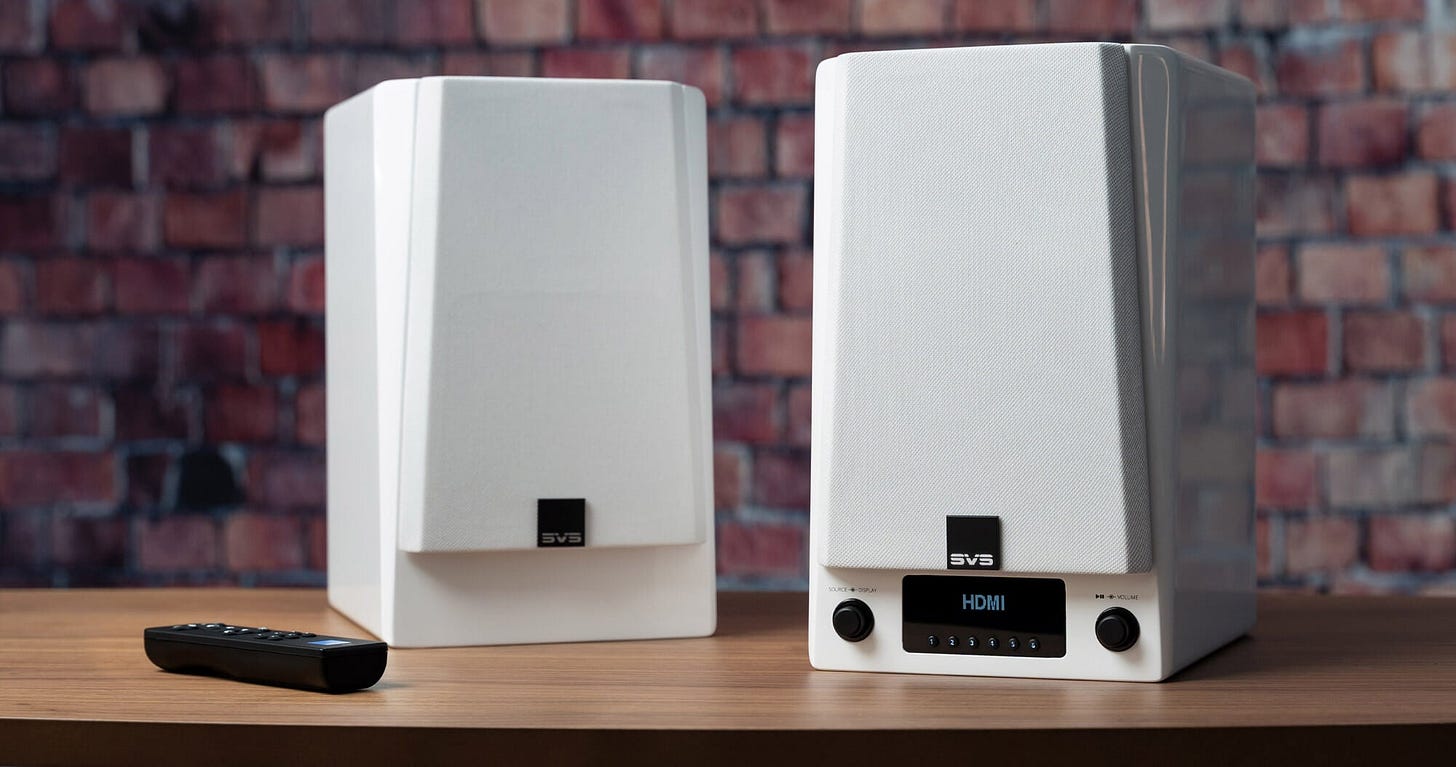Why You “Can’t Hear” The TV - And Why Subtitles Aren’t The Only Solution
You probably don't need subtitles - you just need better audio equipment.
Subtitles are great. They make movies and TV shows accessible to people who are deaf or hard of hearing. They’re essential for watching foreign films. Skip the dubs and use subtitles. They also help when you need to keep the volume low, like when watching late at night.
But lately, more and more people say they need subtitles just to understand dialogue in English-language movies and TV shows. They think the problem is bad sound mixing. It’s not. The problem is their TV’s terrible speakers.
More People Than Ever Are Using Subtitles
A survey by Preply found that 50% of Americans use subtitles most of the time. Among younger viewers, that number jumps to 80% for 18- to 24-year-olds. But only 10% of those surveyed were deaf or hard of hearing. So why are the rest using subtitles? Because they can’t hear the dialogue clearly.
Dialogue is one of the hardest things to mix properly and balance when outputting audio. There are definitely instances where dialogue can be mixed poorly and result in movies that can be hard to hear. Christopher Nolan is notorious for this in his films, mixing the dialogue, effects, and music at similar levels. It adds a sense of realism to his films, but it does make the dialogue hard to make out. But most of the time, it isn’t the sound mix - TV speakers are the problem.
TV Speakers Are Awful, and That’s Not Changing
Movies and high-end TV shows are mixed by professionals using professional equipment. Hollywood movies are designed for theaters with surround sound systems. Prestige TV shows like Severance or Squid Game are mixed at the same level. The sound design is carefully crafted to be immersive and detailed.
That all goes out the window when you play it through your TV’s built-in speakers.
TV manufacturers don’t care about sound quality. They care about picture quality and making TVs thinner. The thinner the TV, the less room for proper speakers. Built-in TV speakers are:
Weak. Most TVs have speakers that output only 5 to 10 watts of power. That’s nothing compared to a decent set of speakers.
Poorly placed. Many TVs have downward-firing or rear-firing speakers. If your TV is mounted on a wall or backed up against something, the sound has to bounce around before reaching you, which makes dialogue sound even worse.
Not built for clarity. TV speakers can’t separate dialogue from background noise effectively. That’s why action scenes are booming, but dialogue sounds muffled.
If you’re using TV speakers, of course, you’re going to struggle to hear dialogue. They were never designed for good sound.
The Fix: Get Some Real Audio Equipment
Not everyone can afford a high-end surround system. That’s fine. But there are way better options than TV speakers or cheap soundbars.
Bookshelf speakers – A set of powered speakers like the SVS Prime Wireless Pro will make a massive difference. These deliver 200 watts of power, compared to the 5–10 watts from most TVs. I use them in my living room, and the upgrade over my old soundbar was ridiculous.

Use old speakers – If you have an old pair of speakers lying around, don’t toss them. A set of Sony bookshelf speakers from the 90s will sound infinitely better than any built-in TV speaker. Pair them with a basic receiver, output stereo sound, and you’ve got an audio setup that’s actually enjoyable to listen to. Older speakers were built to last and can still sound amazing.
A decent soundbar – If you have to use a soundbar, at least get one with a dedicated center channel for dialogue. A Sonos Beam or a Vizio Elevate soundbar and mini speakers will do a much better job than your TV speakers.
The Bottom Line
Subtitles are great. They’re essential for accessibility, foreign films, and watching TV quietly. But if you find yourself using them because you just can’t hear dialogue, it’s not the show’s fault. It’s your speakers.
A small audio upgrade can make a massive difference. You don’t have to spend a fortune. Even a modest improvement will make dialogue clearer, sound richer, and your entire viewing experience better.
Your ears will thank you.




Good points! Also, headphones are a godsend for late night viewing.
I'm glad you brought this to ppls attention, very good recommendations